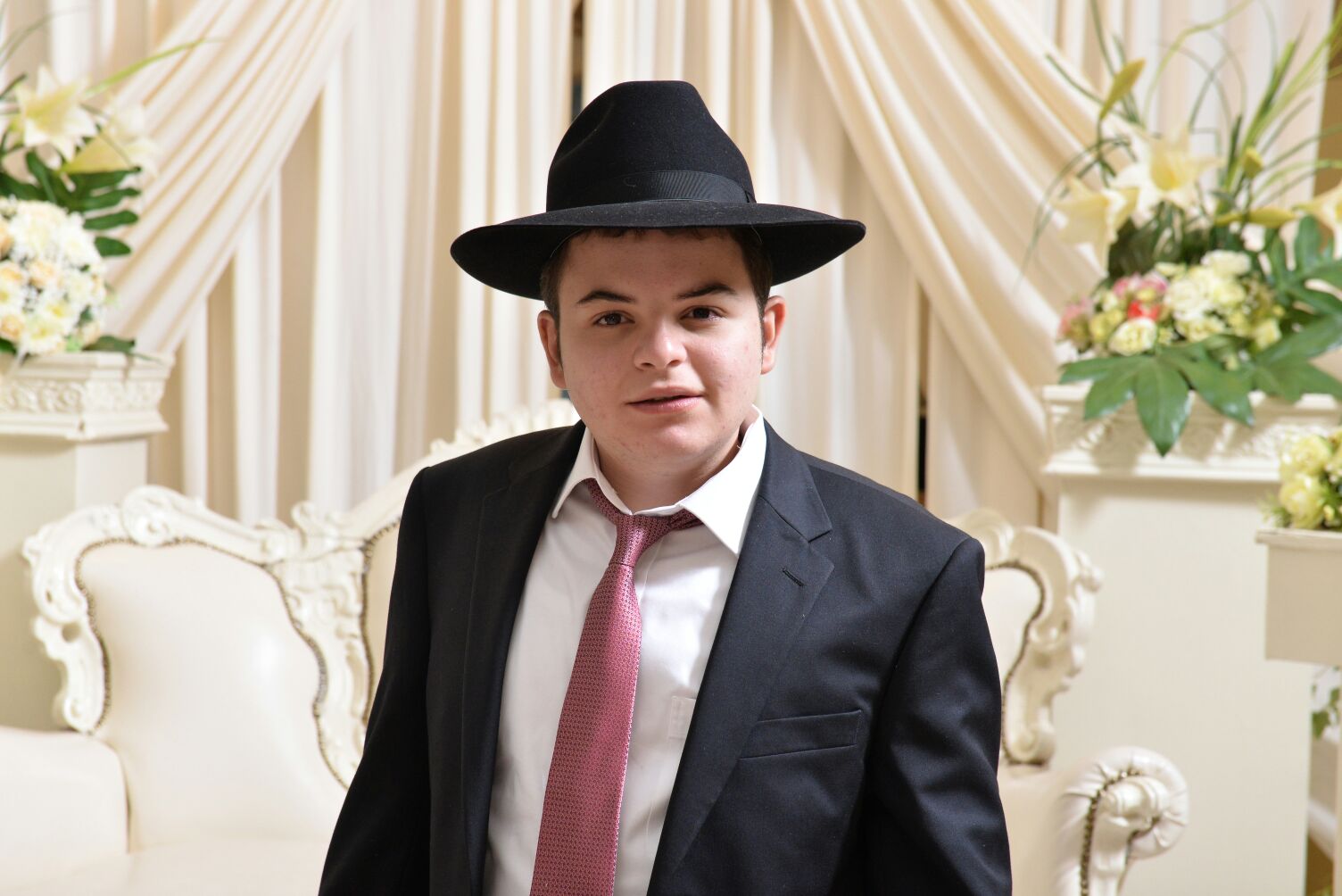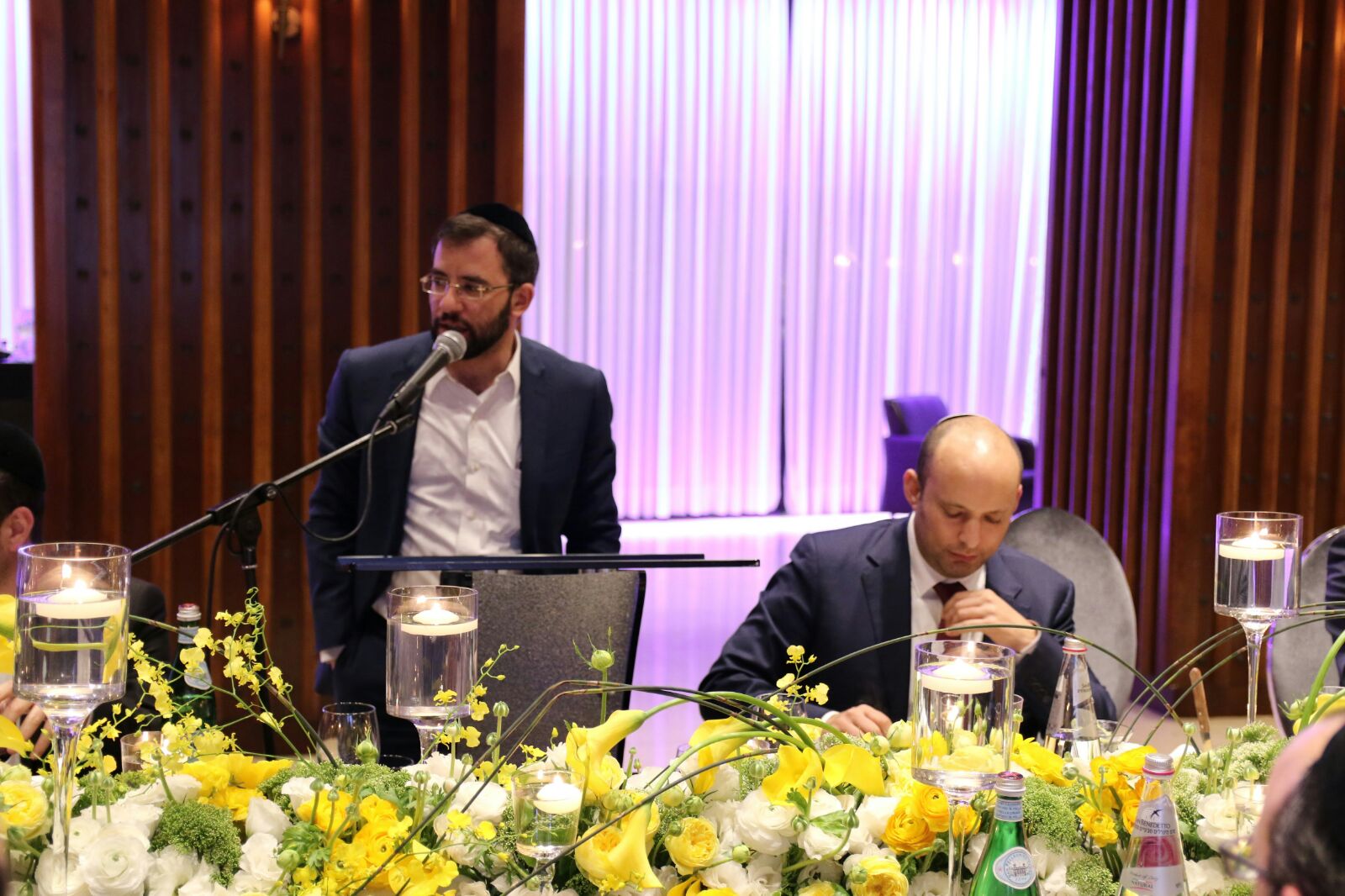Avi Mimran on His Autistic Son: "The Sky Didn't Fall on Us"
Avi Mimran, a respected media figure and host of the central edition at Radio Kol Hai, shares about the challenges of raising his 15-year-old autistic son, Itzik. "Gone are the days when children like these were hidden away," he reflects.
 Avi Mimran
Avi MimranVeteran and beloved radio broadcaster Avi Mimran is somewhat of a walking encyclopedia on autism. His conversation is filled with terms from the field, comprehensive diagnoses, and references to academic studies on autism. "At the start of this journey, before my son Itzik was diagnosed with low-functioning autism, we knew almost nothing," he shares. "We had no reliable source of information, no one to sit with us and help us understand what was going on with our son. We discovered many parents are in the same boat. Many think autism is synonymous with retardation or paralysis, and when their child is diagnosed, they have no structured information to understand the issue. This led us to research extensively into the field, meeting many experts, reading materials, or even translating academic sources on our own. We tried to get to the root of the issue, and today, we can say we're experts in autism."
Itzik, now 15, is Mimran's second son in a family of five children. He was diagnosed with low-functioning autism at age three. "Autism is defined as a communication difficulty," Mimran explains, "where individuals range from high to low functioning on the spectrum. Due to communication challenges, there's immense difficulty accompanied by additional problems."
 Itzik, son of Avi Mimran
Itzik, son of Avi Mimran"When he was six months old, we started to notice something was wrong"
Children with low-functioning autism, Mimran notes, often have behavioral issues that differ from child to child, which include repetitive actions. "Our Itzik eats everything, requiring constant supervision to prevent self-harm. Paper, plastics, metals, everything goes into the mouth. This requires constant 24/7 supervision to maintain his environment safely. We need to remove any dangerous objects he might ingest. It's challenging to bring him to unfamiliar places or to visit places unprepared for him. It's a significant difficulty that requires heightened awareness and supervision from us all the time. There's no freedom, not even on Shabbat or holidays."
In the past six months, Itzik has been treated with medical cannabis, which his father says slightly calms his obsession and improves his condition. There are no medications for autism, as autism is not a disease but a congenital defect in the brain. This is just one of the challenges Mimran discusses in detail. He mentions that there are many other accompanying difficulties.
 Itzik with volunteers from Ezer Mizion
Itzik with volunteers from Ezer MizionUnlike conditions like Down syndrome, which can be diagnosed right after birth, autism doesn't have clear signs that can be identified when a baby is born. When did you start noticing something was off?
"Many disorders are identified straight after birth, but autism isn't identified until the first developmental years. As the child grows, it becomes evident. Usually, by age one, typical parents notice something different about their child, leading to a series of assessments that can take years. When Itzik was six months old, we began to notice something was wrong. We couldn't exactly pinpoint the issue, but we understood his development wasn't normal. This was the beginning of a long and tedious process, where we constantly monitored him, discovering he was missing developmental milestones. He didn't start saying 'mama' or 'papa', and didn't understand us. He wasn't focusing. Gradually, we ruled out various diagnoses until clear signs of autism appeared."
"The sky didn't fall on us, we understood he's autistic"
The diagnostic process, as it turns out, is long and arduous. Itzik was diagnosed at three and a half, though his parents noticed something was off as early as six months. "From age one, we arrived at the Child Development Center. Initially, he was diagnosed with retardation, then with a communication disorder. We lost valuable time because he was initially misdiagnosed with retardation instead of autism, impacting his early years. After a while, we were brought back to the diagnostic committee, and he was determined to be low-functioning autistic. The diagnostic definition is critical, as it involves entirely different management."
How do you process that this child, born as a normal sweet baby, is essentially different and will never be typical?
"One advantage of the long and tedious diagnostic process is that parents gradually come to terms with the fact that their child is different. There's no dramatic moment, no shock and surprise when parents enter a somber doctor’s office and receive the bad news. It wasn't like the sky fell on us all at once; by the time we reached the word 'autism,' we already understood that's where it was headed."
The diagnosis of his son led Mimran and his wife to thoroughly learn about the field. After acquiring extensive medical knowledge, they were introduced to ABA therapy, a unique behavioral approach for changing behavioral patterns in autistic children. Unlike the traditional approach to autism treatment - the DIR model, which operates at the eye level of the autistic child and descends to their level, ABA therapy is based on the premise that human behavior is significantly influenced by how the environment reacts to different behaviors. The therapy builds a comprehensive treatment framework directed at influencing the child's behavior through reinforcement of desirable behaviors and avoidance of reinforcing undesirable behaviors.
This method, Mimran explains, is intensive and highly expensive, requiring customized treatment for each child. Many comprehensive studies have observed significant progress in autistic children treated with ABA. In Israel, it's hard to find professionals specializing in this method, let alone a school that operates accordingly. After he and his wife attempted to find a suitable educational framework for their son and were disappointed, they made a very bold decision: to establish a school.
"It was hard to find people in the country who treat with this method," Mimran recalls. "After much effort, we located someone specializing in ABA by the name of Lisa Leibowitz, and we found a sensitive woman, an angelic figure. Together with her, we decided to open a new school. Looking back, that was a crazy decision."

"We established a school in a matter of weeks from scratch"
In Jerusalem, at that time, there was a facility with a group of autistic children, but this facility was bankrupt with substantial debts. Together with another friend, Mimran went from family to family, patiently explaining the new and unique method, urging them to take a chance. In a surprisingly short period, word spread, and the group began to expand. "Suddenly we found ourselves with 70-80 parents, reaching the home stretch of the summer vacation, two weeks before the new school year, and all that remained was to open a school."
Opening a new school from scratch, for those who don't know, is an extraordinarily complicated procedure. The amount of permits, standards, budgets, and laws that need to be met is unimaginable. Now, factor in that we are dealing with a special education institution, and multiply everything multiple times. In short, it's an impossible mission. But Mimran was very determined.
"At that time, Gideon Sa'ar was the Minister of Education. I used every connection I had to reach his CEO, and they decided to assist out of goodwill and understanding. They recognized it was a very important initiative and a revolutionary model. They connected us with a dear friend named Israel Reisner, who operates 'Shtilim' institutions in the center but hadn't dealt with our field till then. We met with him through the Ministry of Education's mediation, and he decided to help us with the administrative procedure. Within a few weeks, a school for autistic children opened in Jerusalem, operating both the ABA method and the traditional method."
Mimran speaks about the school he founded with excitement, even describing its opening as a "revolution." Six years after its establishment, it indeed appears he is right. The school expanded rapidly, accommodating more and more autistic children whose parents had heard about the unique method it employs. Simultaneously, Mimran and his wife became a point of contact for parents, providing advice and guidance in this field. One aspect that Mimran believes is important to clarify is the importance of separating special education children from those with autism.
"The struggle we've been leading these past few years is to regulate the separation between different disabilities and autism," he says. "Currently, the authorities, as well as the organizations doing tremendous charity, helping families, don’t know how to distinguish between children with intellectual disabilities and autistic children. In blunt terms, it's like taking a person with stomach problems and admitting them to a heart department just because they’re ill in both cases. For example, during Shabbats where charity organizations, for whom I have the utmost appreciation for their activities, unknowingly mix children with intellectual disabilities or other issues with autistic children, it's a problem. Because autistic children become violent and aggressive, and the rest of the children also don't benefit from these encounters. The authorities need to understand this: there's an autism department and an intellectual disability department, and you can't put them all in one. It doesn't work that way. Even in hospitals, there are departments specializing in a certain field, and there's no hospital with a hundred beds for anyone sick in one department."
How does this difference manifest?
"Vacations, for example. Giving autistic children a day off is a disaster; they have to repeat their routine every day, precisely. An autistic child needs a clear daily schedule; they need to know that every day at quarter past seven, they're picked up for school, because if their day doesn't start that way, the rest of their day goes awry. This repetitive routine is an integral part of the autistic spectrum."
Mimran notes that in recent years, as awareness has increased, the situation has improved. "Minister Naftali Bennett paid attention to vacation days, significantly reducing them for autistic children. He also helped us with class sizes and with funding assistance."
And what happens on Shabbat and holidays?
"What happens on Shabbat and holidays? We cope. There's no other choice. There are wonderful organizations that take the children for a few hours and give the parents a few hours of freedom. Even a few such hours without the child is salvation for parents. One of the organizations very active on holidays is 'Refuah VeYeshuah,' which takes children on Passover eve and Sukkot, the most challenging holidays. It is a holy work; they save families, literally. It's salvation for us, unequivocally."
These days, understanding the importance of the matter and the lack of supporting frameworks, Mimran and his wife are working to establish a guesthouse for autistic children, providing accommodation when needed. "If there's a family celebration, if parents want one night to sleep and recharge, this guesthouse is supposed to provide them a solution. We're inaugurating such a guesthouse in the Ramot neighborhood in Jerusalem these days and planning to open another similar one in Har Nof soon. All these things, needless to say, require a lot of money, but it's literally salvation for parents. Anyone in this position knows it."

"I have no idea how I'd look, think, or behave without Itzik"
Do you feel that parenting an autistic child has changed you?
"It's a cliché, but yes. You're not the same person you were before. It changes life entirely. I have no idea how I'd look, think, or manage without Itzik. There are also positive aspects; thanks to Itzik, we’ve managed to help many people. Due to my professional status as a media figure with a platform to raise awareness, I can use that platform and provide an inside view. Thanks to Itzik, we’ve become much more patient parents, taking life in proper proportion. Suddenly, small problems in life don't look the same; we have much patience and acceptance for the children because everything gets its true perspective. Also, the siblings grow strong; they have a lot of maturity and the ability to accept differences without question."
Mimran recounts an incident that occurred a few weeks ago when he went with his 7-year-old son, Itzik's brother, for Shabbat prayer at the synagogue. "That Shabbat, a group of young people with Down syndrome came to the synagogue to pray, and there were kids who saw them and just stood in front of them and giggled. My son quietly said to me: "Those kids laughing at them are much more unfortunate than they are."
"From a very young age, our children learn how to embrace the different, and I think it contributes to the family in an extraordinary way. The benefits are obvious, despite the trials and challenge. Even in our community, there's more openness and inclusion in recent years. Gone are the days when children like these were kept hidden on porches. We see change, and I very much hope it continues."

